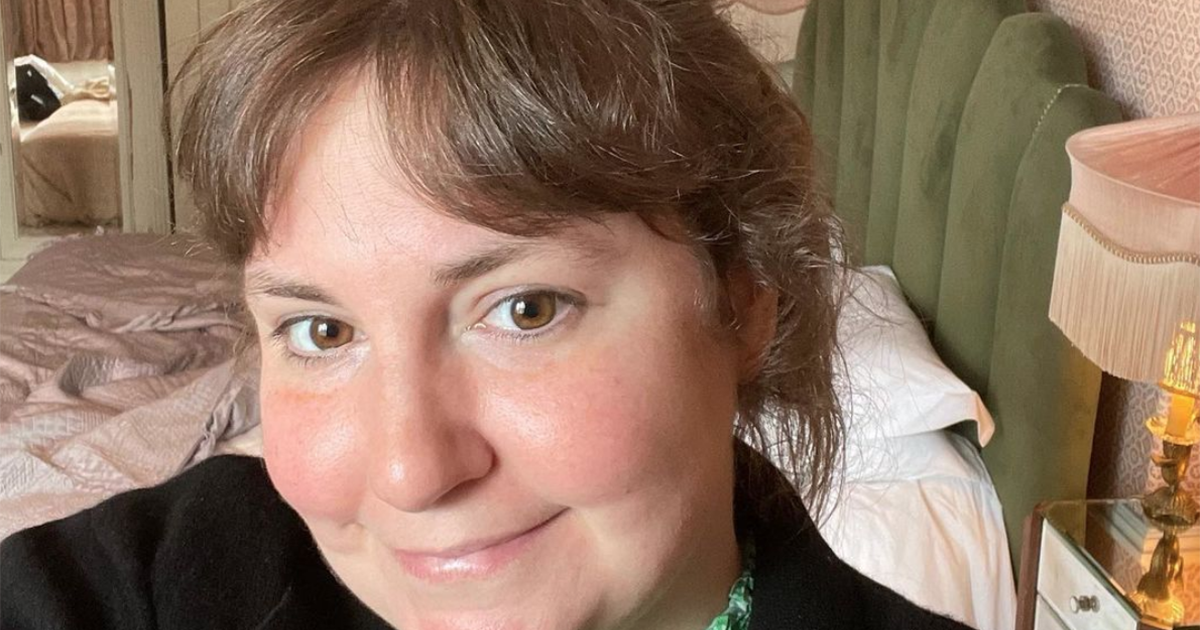Body Positivity After Cancer
- Actress Lena Dunham has something to say to all the internet trolls publicly shaming her in the wake of her recent wedding to musician Luis Felber.
- Cancer warriors and survivors who have had their bodies altered due to treatment can draw some inspiration from Dunham's comeback.
- Struggling with body image after treatment for cancer is not unusual. But it's important to remember that some of the physical changes are only temporary.
Dunham, 35, is best known as the creator, writer and star of the HBO television series Girls, for which she received several Emmy Award nominations and two Golden Globe Awards. She doesn’t have any connection to cancer. But she does have endometriosis, which led to her decision of having a hysterectomy a surgery to remove a woman's uterus and cervix at 31 years old. The procedure is commonly recommended as a treatment option for women with either ovarian or cervical cancer.
Read MoreDunham's Comeback
Dunham and Felber got married at the end of September. And about a week ago, Dunham shared one of their wedding photos on Instagram. It seems there were some "gnarly" as Dunham says comments made on the post, which prompted her to share a selfie Wednesday with a message to those who left comments, as well as the people reading them.She first talks about how much fun she had during her wedding, and how excited she is to share what she'll be working on in 2022.
View this post on Instagram
"But all of this safety made me forget, for a moment, why I've created such intense boundaries with the internet over the past few years," she writes. "It's a little too easy to feel the glow of support and forget about the cesspool lurking behind it so I took a peek, and saw some gnarly sh**, most not worth responding to or even sharing with you."
"But one narrative I take issue with, largely because it's a story I don't want other women, other people, to get lodged in their heads is that I should somehow be ashamed because my body has changed since I was last on television."
Dunham, the creator of the show Girls, writes that one comment read, "Did Lena eat the cast of Girls?" it just isn't a very good joke, she says. "It's ironic to have my body compared to a body that was also the subject of public scorn an echo chamber of body shaming."
"When will we learn to stop equating thinness with health/happiness? Of course weight loss can be the result of positive change in habits, but guess what? So can weight gain. The pics I'm being compared to are from when I was in active addiction with undiagnosed illness. In the 4 years since I've gotten sober and begun my life as someone who aspires toward health and not just achievement. These changes have allowed me to be the kind of sister/friend/daughter that I want to be and yes meet my husband (who, by the way, doesn't recognize me in those old photos because he sees how dimmed my light was.)"
"I say this for any other person whose appearance has changed with time, illness or circumstance it's okay to live in your present body without treating it as transitional. I am, and I’m really enjoying it," she adds.
Body Positivity After Cancer
Struggling with body image after treatment for cancer is not unusual.
Having surgery that leaves a scar might be a necessary course of action. But it's important to remember that many of the physical changes caused by cancer treatment are only temporary even scars fade over time.
Marisa Gholson, a physician assistant at Compass Oncology at the Vancouver Cancer Center in Vancouver, Wa., tells SurvivorNet that many women even begin to embrace their scars after treatment.
Marisa Gholson, a physician assistant, discusses body image after cancer treatment.
"Some ladies will call them a badge of honor, that they have gone through that surgery," Gholson says. She also noted, however, that scars like many of the other side effects that come with ovarian or cervical cancer treatment will become significantly less prominent over time.
Treatment for ovarian or cervical cancer can also include the removal of a woman's reproductive organs like in Dunham's case which can also affect body image. When it comes to managing these side effects, keeping your emotional health in check whether that means seeing a therapist, visiting support groups or simply learning to accept your situation becomes a crucial part of the cancer journey.
Contributing: Abby Seaberg
Learn more about SurvivorNet's rigorous medical review process.

